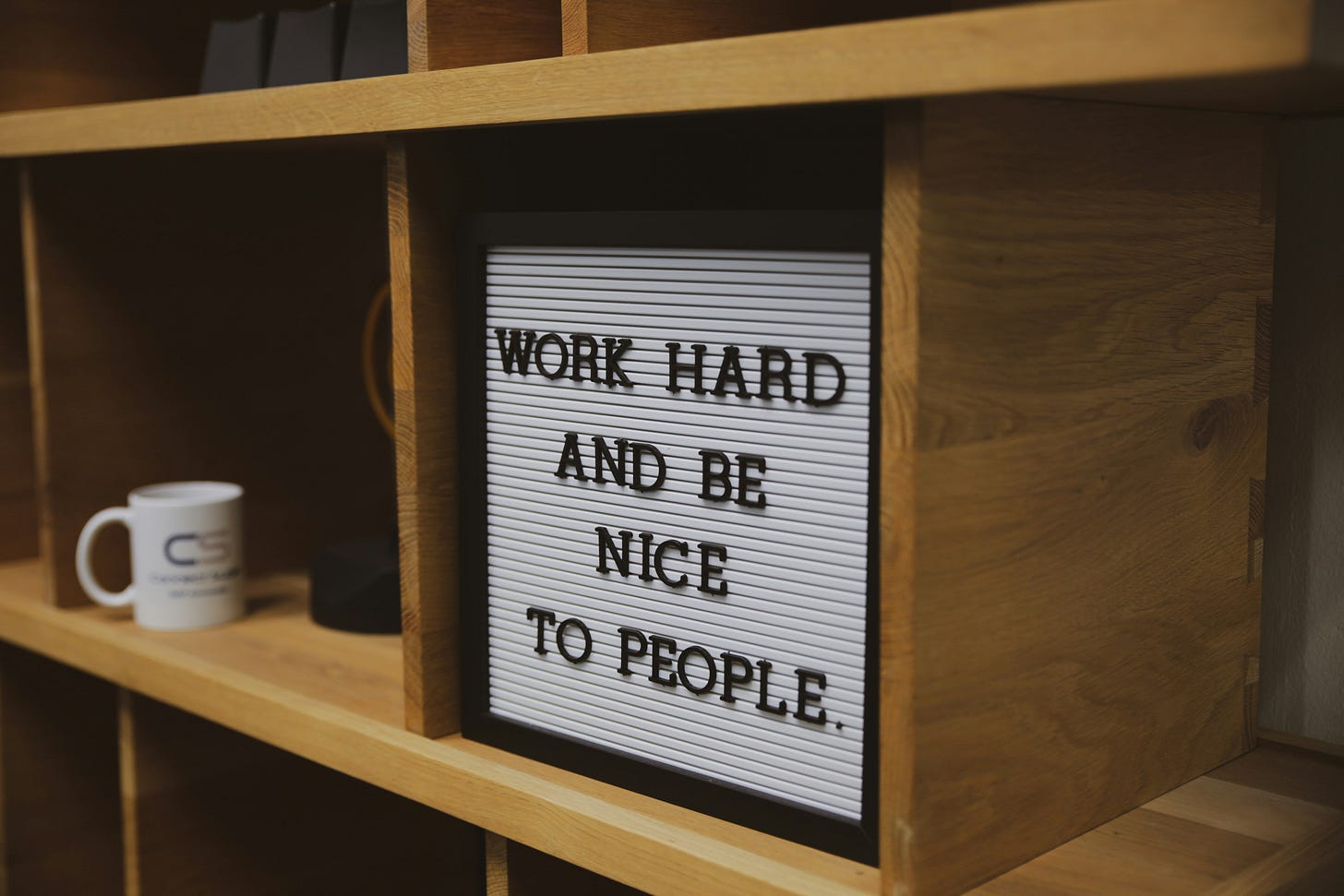You Deserve Better
Bad behavior says more about them than you, but it still stings
A dismissive comment. A passive-aggressive tone. That feeling of being gaslit.
We’ve all dealt with those colleagues (and sadly, managers) in the workplace. Maybe they don’t realize how they’re showing up. Or worse, maybe they do.
Either way, their behavior says so much more about them than it does about you. You might know that in your head, but it still stings—and you don't need to pretend otherwise.
You don’t have to brush it off. You don’t have to apologize for letting it affect you—or for crying. It’s totally okay to feel hurt by bad behavior.
We’ve come to make excuses for it, but we all deserve better.
Early in my career, I ended up in tears in my manager’s office after a senior leader unloaded on me. He was a bully, generally, and that day I was his target.
“You need to toughen up,” my manager said.
Ummm … no. Wrong answer.

We need to hold our colleagues and our workplaces to a higher standard. It’s not unreasonable to expect civility and respect.
If you’re on the receiving end of this type of behavior, don’t just brush it aside. Feel your feels. Then tell someone.
If you’re a witness to this behavior, don’t stay quiet. Call it out as unacceptable.

While there are always power dynamics at play, we all can do a better job of holding our colleagues accountable for their behavior in the workplace.
Especially those of us with privilege—whether it's seniority, identity, or social status—we have an extra responsibility to put that privilege to work ensuring everyone is treated respectfully.
And if you’re a leader dishing this out? Knock that sh*t off. Seriously, do better—or step aside for someone who will.
Bonus reads: The very least we can do as leaders is create an environment where everyone feels safe, accepted, and respected. If you can’t do that, then perhaps leadership isn’t the right path for you?





I had a boss like that. “Work Hard, Be Brutal, Make History”. I left the team.
How do you recommend we call out other leaders? I know it’s best in the moment, but what about when your team brings it to you later? How is it most effective to approach the offender?